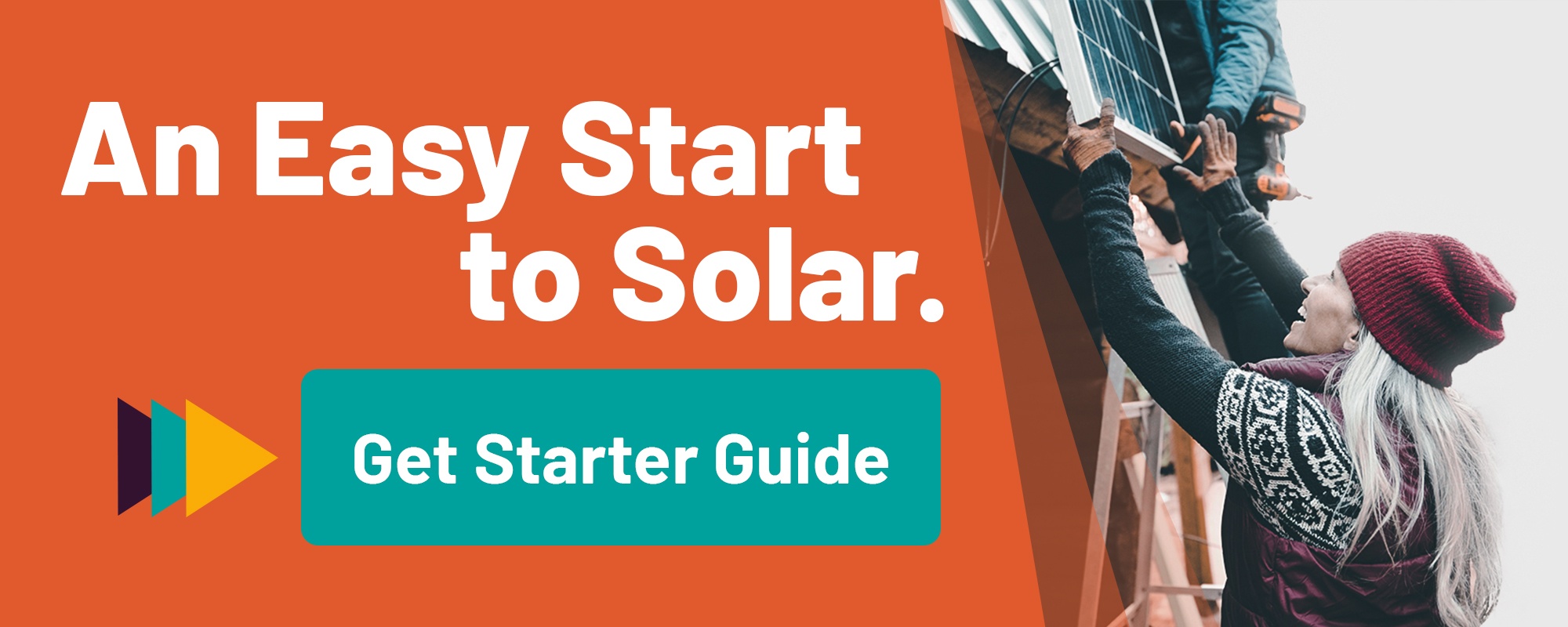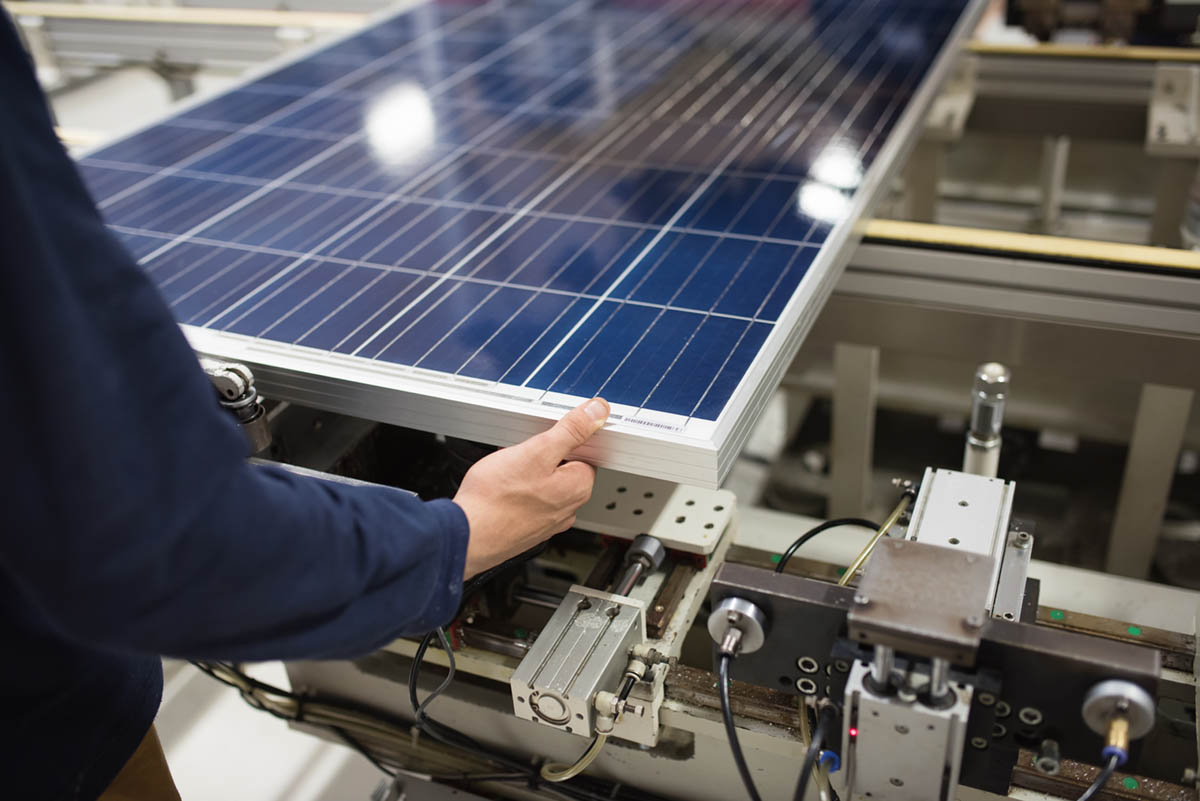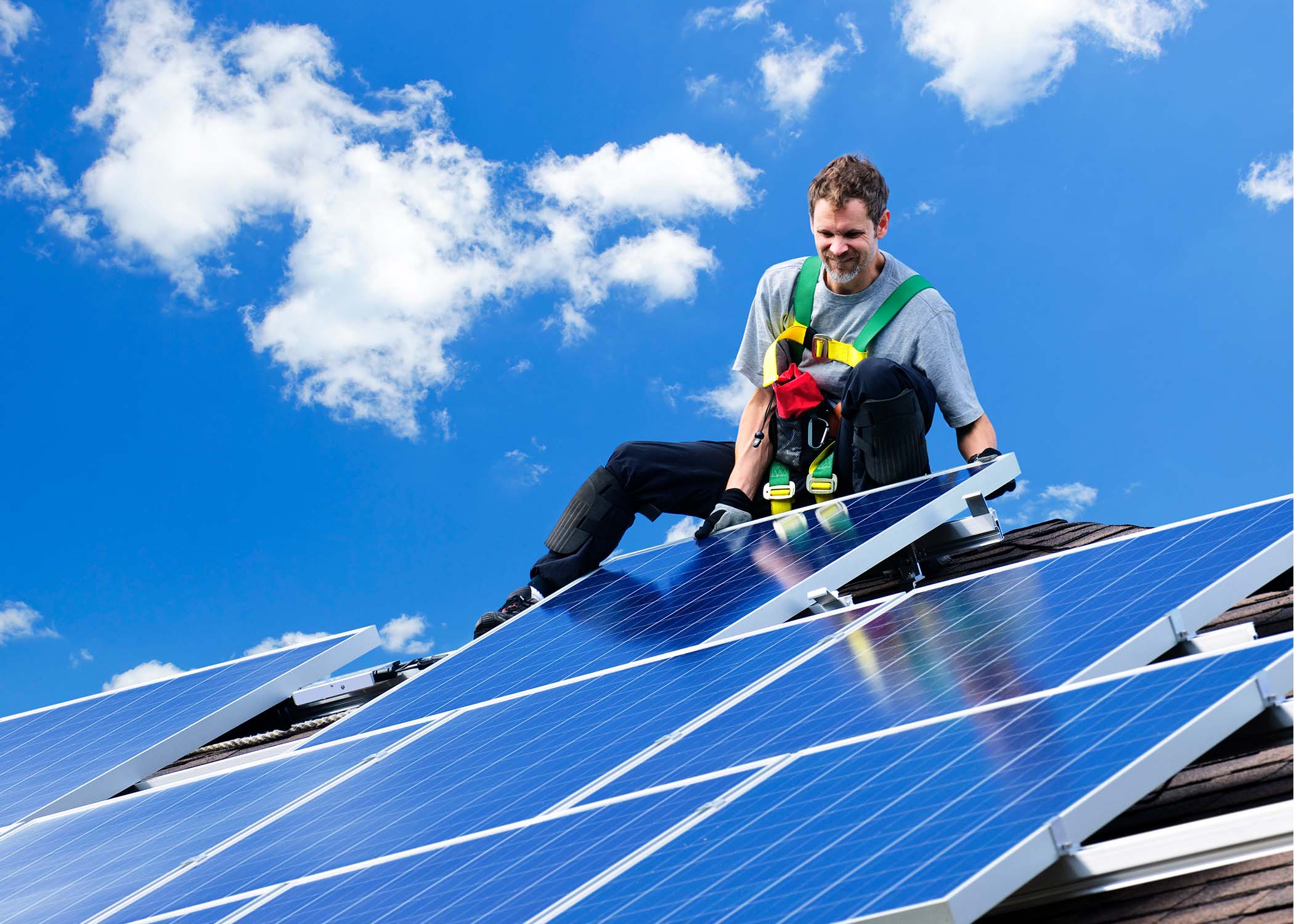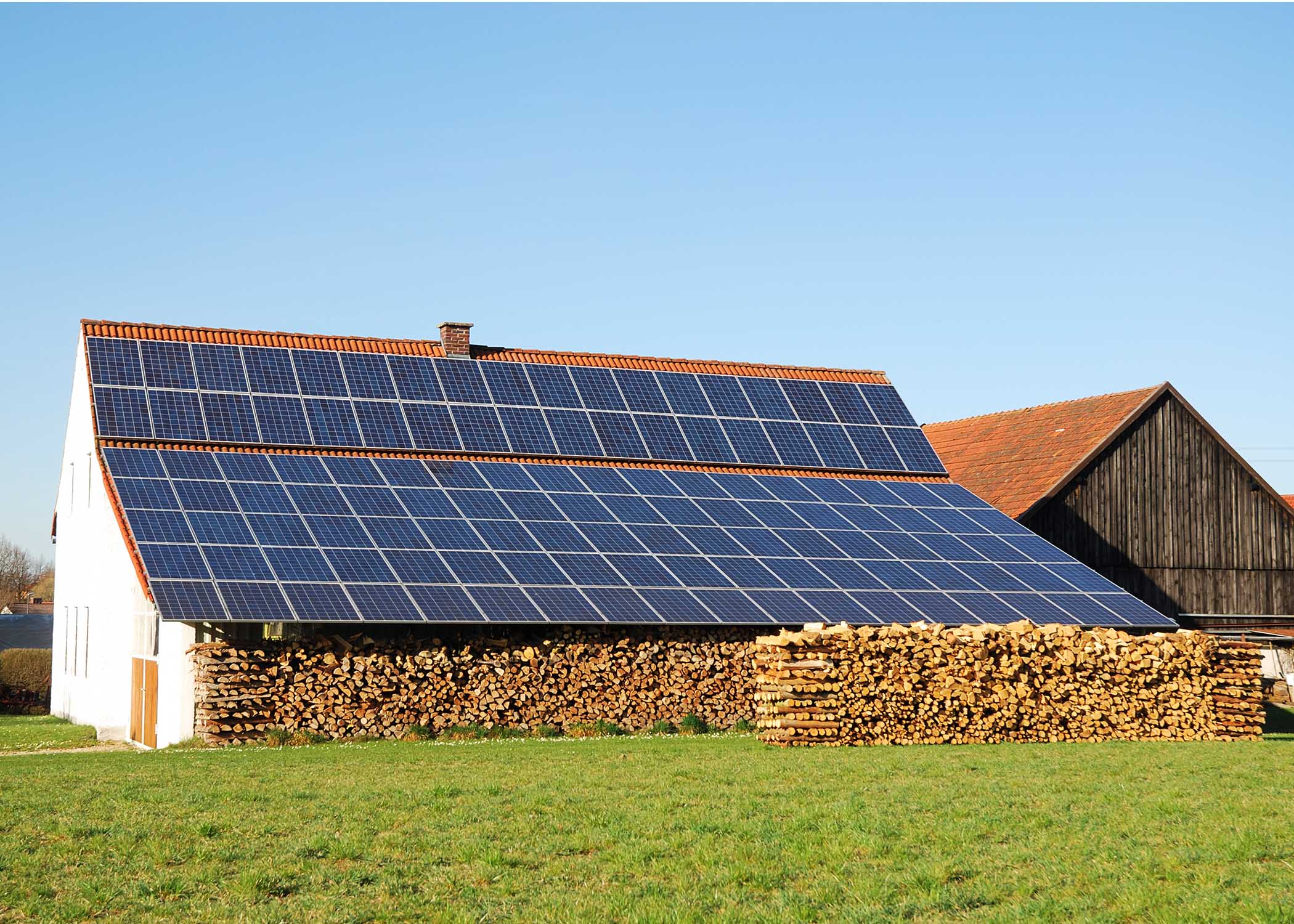Let’s start with a pop quiz.
Do you know how much sunlight our planet basks in?
If you guessed 430 quintillion joules (that’s 430 with 15 zeros!) every hour, you win!
That’s more energy than everyone on the planet uses in a year.
We get a clean, carbon-free renewable energy source when we capture the Sun’s energy.
And solar power is catching on.
This is because the technology is improving, reducing the cost of photovoltaic panels by about 70% since 2014.
So, what are solar panels used for?
Let’s check out the many uses and see how you can take advantage of the Sun’s power!
What Are Solar Panels Used For? Powering Individual Homes
Yes, this one was obvious.
We see panels on homes all across the US.
Every quarter, one home out of every 600 is installing solar panels.
There’s enough solar power to supply electricity to 21.8 million homes in this country.
Home systems vary in size and capacity, but most people install panels right on the roof.
Generally, a house with rooftop solar still connects to the grid.
The panels supply your home with power when the Sun is shining.
Any excess is sent back to the grid, typically in exchange for a credit to apply toward electricity when you need it.
While residential solar may require an up-front investment, the federal tax credit lowers the cost of installation.
Keeping the Lights on When the Power Goes Out
What are solar panels used for during power outages?
If you install panels for your home, you still depend on the utility company to supply electricity when the Sun isn’t shining.
Additionally, since all the extra power is sent back to the grid, you have no additional source to fall back on if the power goes out in your area — unless you have battery storage.
Even if the Sun is out, a car accident or heavy grid demand can lead to a utility outage.
With a grid-tied system, you lose your power, too.
There is an automatic shutoff in place during a power outage.
This safety feature ensures no electricity travels down the lines while workers are working on them.
However, you can keep the lights on even during a power outage when you have a battery bank for your solar system.
You may even be able to lend a helping hand to your neighbors in emergency power outage situations, like the one in Texas in 2021.
Providing Energy to Entire Neighborhoods
People frequently associate solar power with the systems installed in individual homes.
But how are solar panels used in a community system?
Shared systems provide electricity to homes within a specified area.
These panels are located within or near the community.
Instead of rooftop installations, the panels are ground-mounted in arrays large enough to serve community households.
Utility companies may also build solar arrays to supplement their carbon-focused energy supply.
These arrays offer utility companies a way to incorporate an environmentally-friendly power source into their energy portfolio.
Customers don’t need to purchase a solar system to access renewable energy in this model.
However, they still depend on the utility company.
The benefit of both the community and utility-shared approach is that people who don’t have an ideal roof for a solar installation still have a way to access clean energy.
Powering Up a Business
Energy consumption produces a higher percentage of greenhouse gases than any other global warming contributor, accounting for about 35% of emissions.
Many businesses owners are aware of this harmful environmental impact and want to do something positive.
Companies also know that consumers work with businesses whose practices and philosophies align with their own.
Going solar is vital.
In fact, by the end of 2022, an estimated 20,716 businesses will use solar to power up their business operations.
As an eco-conscious consumer, it helps to know that you may increasingly have the option to purchase your goods and services from companies doing their part to hold climate change at bay.
Supplying Electricity to a Farm or Ranch
Solar power provides farmers and ranchers with a new level of independence and dependability.
More specifically, solar provides two types of benefits: consistent and reliable energy and a second source of income.
Farming and ranching are energy-intensive industries, and most people who work in these industries recognize the impact their business has on the environment and, ultimately, their livelihoods.
Farmers and ranchers significantly reduce energy consumption using solar panels, and they can power their entire operations with a renewable energy source.
These industries experience wide fluctuations, making it challenging for many to maintain their businesses.
To supplement their incomes, they are installing solar farms on their properties.
It only takes a small percentage of land, gives the farmer or rancher a reliable second income, and helps the community lower its carbon emissions.
Giving Homeowners the Opportunity to Live Off-Grid
How does complete energy independence sound to you?
It sounds pretty great to us, too!
One answer to what solar panels are used for is to free people from utility companies.
When paired with a battery bank, they can store enough energy to power a home’s electricity needs at night and when the Sun is hiding.
The battery banks typically need to be larger than what you would use for backup power during an outage, but in exchange, you do not need to connect to the utility at all.
This solar setup is a must-have for anyone who wants to live off-grid.
But your local authority must allow off-grid living.
Many of our customers are making a move to a self-sufficient lifestyle.
We help them achieve this through complete off-grid solar system kits.
The tiny home and homesteading movements are on the rise, and many of those choosing these lifestyles use solar panels for their electricity supply.
Turning on the Well Pump
If your water source is a well, you know the extra frustration of losing power.
You worry about the food going bad in the refrigerator or the inability to warm up your house, but you also have water problems.
What are solar panels used for with a well-water supply?
When the power fails, the well pump won’t work if the pump is connected to the grid.
The lack of water adds to the challenges and threats of a utility-level power outage.
However, outages aren’t a problem when a panel collects sunlight to power the pump.
While these systems often power irrigation systems on farms, they can be used anywhere.
They’re instrumental in rural areas, in the US, and worldwide.
Solar-powered well pumps increase access to clean water in regions that don’t have reliable electricity and, in turn, reduce dangerous water-borne diseases in these areas.
Heating up the Water
Rooftop solar supplies homes with electricity that can power the water heater, but there is another option for heating water.
If the panels don’t power the water heater, how are solar panels used to warm up your home’s water?
In a solar water heating system, the panel collects the Sun’s energy and distributes it to a hot water storage tank, giving you access to heated H2O without using any electricity.
Standard water heaters use a lot of energy and contribute to almost 20% of the electricity your home consumes.
Cutting out the cost of operating this plumbing fixture can significantly lower your greenhouse emissions and lower your power bill.
A solar water heating system is an excellent option for those who can’t install a complete rooftop panel system.
Supplying Energy for a Recreational Vehicle
The RV lifestyle is thriving.
RV sales broke records in the first quarter of 2021, with 148,507 units shipped.
Approximately 11.2 million households in the US own a motorhome, 5th-wheel, or trailer.
Many new models have solar panels systems installed at the factory.
Still, others are set up with the wiring and control panels, giving the owner the option to install panels and batteries later.
What are solar panels used for in RVing?
Going solar allows RVers to truly get away from it all and immerse themselves in nature.
People don’t need to pay for electric hookups at RV parks with panels on the roof.
Instead, many of them head to remote locations in some of the most beautiful areas in the country.
Often, they camp on public lands — for free.
For those who live full-time on the road, solar panels provide them the ultimate freedom they seek with this lifestyle.
Living It Up on the High Seas
As with RVing trends, many people are discovering the joys of heading out into open waters, and some are even moving into their floating homes.
Solar panel installations provide boaters with a consistent, readily available energy source for operating the electrical components of their vessels.
How are solar panels used on a boat?
They keep the boat batteries charged and keep electrical gadgets and appliances running, and they’re much quieter than a generator.
If you own a boat, installing a solar system reduces your need for gasoline.
Solar panels virtually eliminate the need to burn gas for sailboat owners, allowing boaters to spend more time out on the high seas before returning to shore.
Working in Remote Locations
An estimated 36.3 million workers in the US will work at least part of the time remotely by 2025.
Many employers and employees are finding out that remote work benefits everyone involved.
Working out of the office provides flexibility for employees and lowers overhead costs for businesses.
So, how are solar panels used for remote work?
With the ability to work from wherever you can access the internet, you can take your job to your favorite beach location or a summer cottage.
Portable solar panels let you stay connected without plugging into the grid, giving you the freedom to go where you feel inspired.
Just don’t forget to take time off the job to enjoy the scenery and sights.
Adding Safety Features to Homes, Businesses, or City Streets
Solar panels can increase the safety of your property when you use them to power security lights on the exterior of the building or around the perimeter of your property.
You can use them to supply power to a gate or turn on cameras.
They provide a consistent energy source that gives you peace of mind knowing you have a system that improves your property’s safety features.
Cities also use them to improve safety on city streets.
Panels can be wired to streetlights.
Solar can also power traffic signals and light up traffic signs and navigational lights.
Public works departments use this energy source to improve safety while lowering their environmental impact.
Seeking More Answers to the Question “What Are Solar Panels Used For?”
At Unbound Solar, we live and breathe solar energy.
If you’d like to know what solar panels are used for in your particular situation, reach out!
We’re always happy to talk shop!



